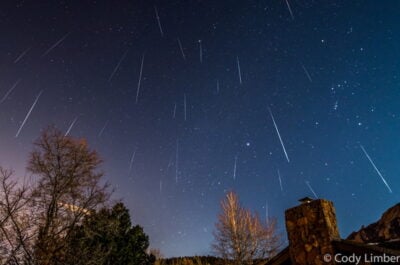
Where to see the Geminid meteor shower in 2023
Latest news 5 minute read
Read article
Your stargazing experience can be made a lot more comfortable and enjoyable with a bit of forward planning and preparation.
Dress appropriately! Even during the Summer months, the evenings can get quite cold, and in the winter, sub-zero temperatures are quite common, especially if you have found somewhere quite remote to escape light pollution!
The secret is to dress in layers, rather than to try and wear single thick items. Multiple layers of clothing help trap air between them and thus increases the insulation. They can also be discarded if you find yourself too warm.
Don’t forget to wear a hat, especially one that covers your ears. Whilst gloves can be useful, you may need to keep your hands free to operate things like telescopes or binoculars, so look for gloves with removable mitten sections or with the fingertips removable.
Whilst torches are of course essential items they can adversely affect your stargazing experience. The human eye has evolved so that we can see incredibly well in the dark — our pupil dilates enabling our eyes to gather more light and the chemicals in our eyes change to help us see in low light.
The process takes approximately 30 minutes for our eyes to become fully adjusted, or dark-adapted. White light affects this natural process — if our dark-adapted eyes see any white light they reset and it’s necessary to wait 30 or so minutes again. Having dark-adapted vision makes a huge difference when stargazing, you’re able to see many more stars and make out much more detail in faint objects when observing through a telescope once your eyes have adjusted.
To avoid the issue of losing your dark-adapted vision — take a red torch! This because red light does not affect your dark-adapted eyes… Red bike lights often make for great stargazing torches, especially the ones that are rechargeable. Leave your phone in your pocket, and if you do need to use white light for any reason be mindful of other stargazers!

It is always worth keeping a flask of a hot drink such as tea or coffee to help keep you warm and the sugar hit from chocolate or biscuits will definitely keep your spirits up on the coldest of nights. Avoid alcohol as even small amounts affect your ability to see in low light.
The simplest of stargazing sessions needs no equipment at all, however, if you have binoculars or telescopes, you will undoubtedly be able to see more. Visual aids such as this capture more light than our eyes can — it’s this additional light that helps us see faint objects such as galaxies and nebulae. If you are interested in getting a telescope have a look at our beginner’s guide to telescopes which includes some recommendations.
If you are not an experienced observer, don’t forget your star charts or books to help you check what you are looking at. Phillips have published an excellent pocket stargazing book that is updated every year. For a more comprehensive book, and ideally suited to any new telescope, we thoroughly recommend Turn Left at Orion.
A handheld Star chart or planisphere is a great way of understanding the night sky, however, you probably have a powerful computer in your pocket already – your smartphone!
Bearing in mind the caveat that phones can adversely affect your night vision, they are a fantastic way of learning your way around the night time skies. There are now many mobile phone apps that can present a real-time view of the night sky – many use the phone’s GPS, compass and built-in inclinometer to mirror the way the device is pointing giving you access to all sorts of information about the object your phone is pointed at.
| Apple iOS | Android | |
|---|---|---|
| Star Walk 2 | Star Walk 2 | |
| Sky Safari | Sky Safari | |
| Meteor Shower Calendar | Meteor Shower Calendar | |
| ISS Detector | ISS Detector | |
| Aurora Watch UK | Aurora Watch UK |
Once you’ve got your equipment and supplies have a look at what you can see when stargazing, or decide when is best to stargaze, find a suitable stargazing destination, or maybe look up your nearest stargazing event.
Our most recent astronomical articles...

Latest news 5 minute read
Read article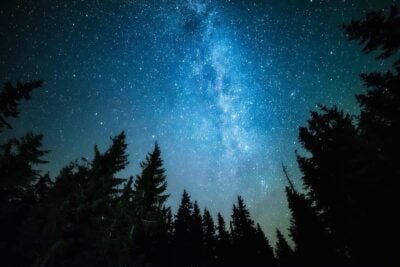
Latest news 4 minute read
Read article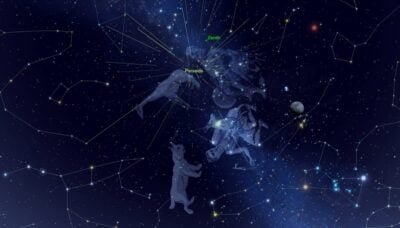
Latest news 5 minute read
Read article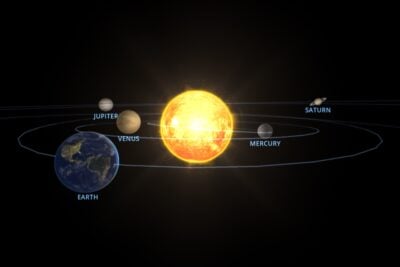
Latest news 2 minute read
Read article
Latest news 1 minute read
Read article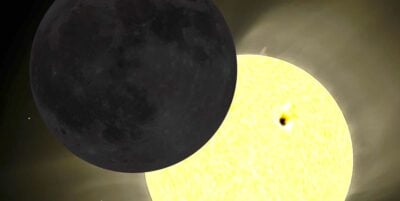
Latest news 2 minute read
Read article